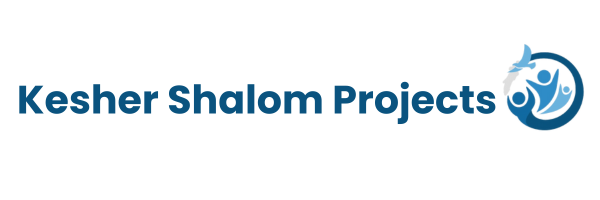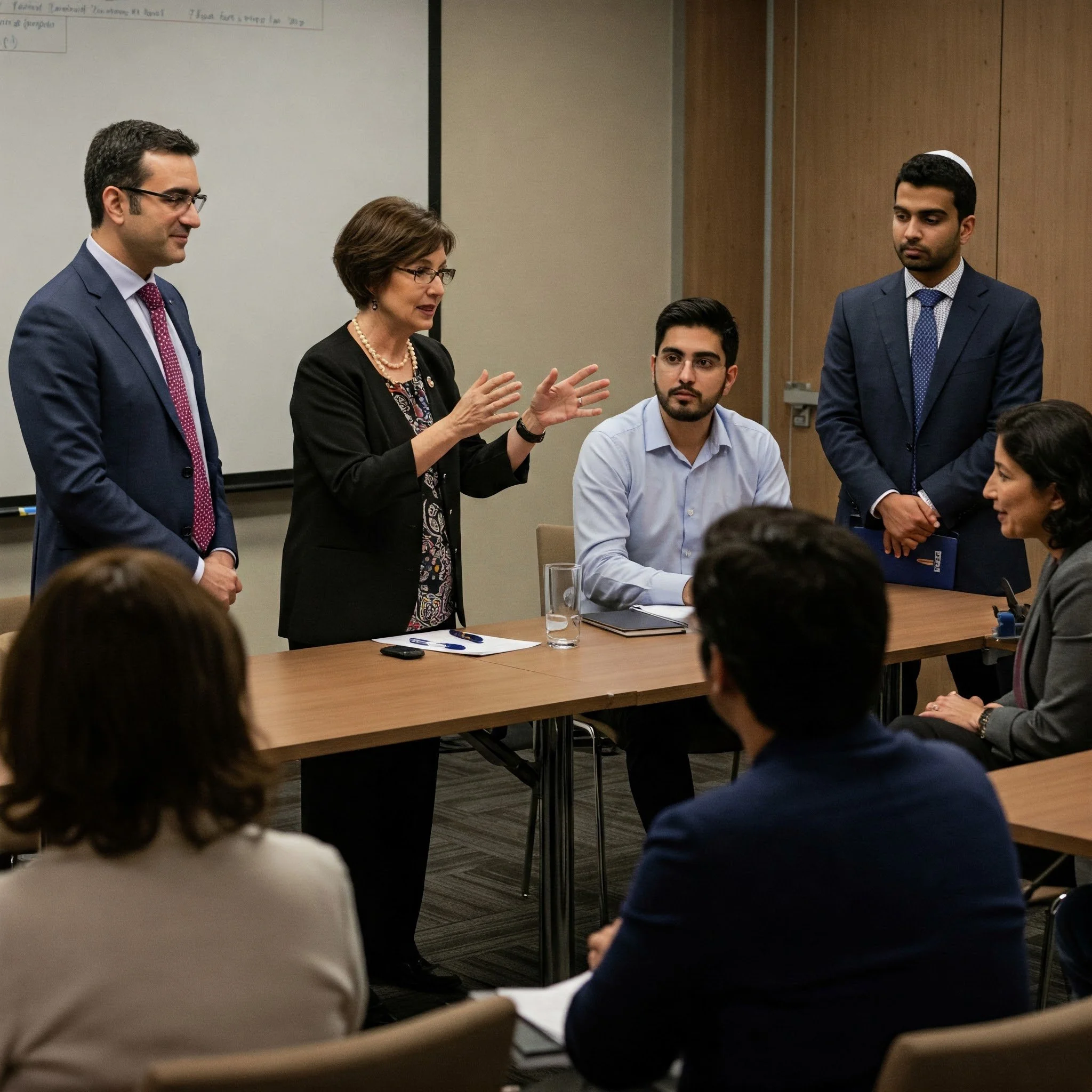A Beacon Amid Darkness: Honoring the Bibas Family and Our Shared Hope
"Grief is not just an individual experience—it is something we share, something that binds us together in our pain and in our healing. In times of loss, whether personal or collective, we find solace in remembrance, in shared sorrow, and in the quiet strength of community. In honor of the Bibas Family may their names be blessed and honored always and forever.
The Psychological Impact of Antisemitism: Identity Destabilization
Antisemitism goes beyond physical attacks—it deeply affects Jewish identity, causing destabilization, shame, and confusion. This blog explores the psychological toll of antisemitism, including the harmful effects of disinformation, delegitimization, and dehumanization. It also highlights the importance of reclaiming identity and community resilience as key steps in healing from these traumatic impacts.
Understanding Gaslighting
Gaslighting is a manipulative tactic that distorts reality, leaving victims questioning their own perceptions, struggling with self-doubt, and emotionally drained. On a societal level, antisemitic gaslighting erases Jewish identity, denies history, and silences those speaking out against hate—making it crucial to call it out and reclaim the truth.
The Indoctrination Process: How It Shapes Identity and Fuels Division
The consequences of indoctrination extend far beyond the individual. It fractures communities by sowing distrust and creating deep divisions, making dialogue across differences nearly impossible.
Malka Shaw’s Journey: From Trauma to Action—The Birth of Kesher Shalom Projects
Malka integrates psychological expertise with Jewish ideology and values to build communal resilience. With the rise of misinformation and ideological warfare, she is a crucial voice in the fight for clarity, resilience, and the preservation of fundamental human dignity.
Unmasking Propaganda: The Role of Professional Conversations in Addressing Antisemitism
In professional settings, addressing antisemitism requires more than just recounting history—it demands a holistic approach that includes a deeper understanding of Jewish identity and the psychological mechanisms behind propaganda. By focusing on Jewish values, resilience, and contributions, we can foster inclusive environments where critical thinking thrives, and biases are countered. This article delves into the impact of propaganda, the importance of nuanced discussions, and the role of professionals in shaping a more informed, compassionate future.
How Trauma Impacts Identity
Trauma reshapes how we see ourselves and our place in the world. From altering core beliefs to influencing cultural identities, its impact runs deep. Exploring how trauma disrupts and fragments identity reveals pathways to healing and rediscovery.
Navigating Ethical Challenges as Mental Health Professionals Post-10/7: Addressing Antisemitism in the Field
Since October 7th, Jewish mental health professionals have faced increasing instances of antisemitism within the field, challenging core ethical principles like cultural competence and inclusivity. The oversimplified victim-oppressor framework often distorts Jewish experiences, leading to identity invalidation and epistemic injustice. Upholding ethical standards requires addressing these biases through education, cultural humility, and stronger professional guidelines. Mental health professionals must commit to fostering a truly inclusive practice that respects all identities and lived experiences.
Why Anti-Zionism Can Trigger a Trauma Response in Jewish Persons
For many Jewish individuals, the subject of Zionism—and by extension, anti-Zionism—carries deep emotional and psychological weight, extending far beyond political discourse. To truly understand why anti-Zionism can trigger a trauma response, it is essential to explore the profound connection between Israel and the collective sense of safety, survival, and identity that has been woven into Jewish history. Trauma, at its core, is about the experience of feeling unsafe, and for Jews worldwide, Israel has become a symbol of protection and refuge.
Chronic Illness and Antisemitism
What happens when political affiliations and social activism infiltrate healthcare dynamics? In our current climate, marked by rising hostility towards Jews and the pervasive influence of social media, it is alarmingly easy to witness instances of antisemitism among healthcare providers. Patients now find themselves grappling not only with the fear that their providers may be unable to care for them adequately but also with the more profound concern of whether they can feel psychologically safe while receiving that care. Until October 7th, this was not a worry for my patients, my peers, or myself.
The Intersection of Mental Health and Antisemitism: A Critical Imperative
In the current landscape of rising antisemitism, the intersection of mental health and the fight against antisemitism has become a focal point of my professional and personal efforts. Understanding the profound impact of macro gaslighting and discrimination on individuals, communities, and society at large is not only crucial but imperative.
The Importance of Teaching Cultural Competency to Combat Antisemitism in Schools and Workspaces
In today’s diverse world, cultural competency is essential as it fosters empathy and compassion. Understanding and respecting cultural backgrounds fosters inclusivity, reduces prejudice, and promotes harmonious interactions. Cultural competency involves recognizing and appreciating cultural differences and interacting effectively with diverse people. It includes knowledge, attitudes, and skills that enable individuals to understand and respect cultural differences. Cultural competency fosters an inclusive environment where everyone feels valued, respected, and safe
4,000 years of resilience
Our ancestors experiences included recurring persecutions. A healthier perspective on this is to view Jewish History as a 4000 year old story of resilience. The implication of course is that our resilience continues today, in the face of current trauma, both collectively an as individuals.
How Do We Talk to Our Children About Antisemitism?
Antisemitism is a part of the Jewish experience and existence in this world. Just as we have the "stranger danger" talk in order to prepare our kids about the reality of kidnappers and pedophiles, addressing the reality of antisemitism is critical. Here’s how we can approach this important conversation with our children.
The Vital Need for Trauma informed therapy in a Jewish context
The current wave of anti-semitism was sparked by the Hamas attacks of October 7, 2023. Although the majority of the victims were Israeli civilians, public reaction worldwide quickly and inexplicably moved from celebration of the attack to blaming the victims, and more recently to acts affecting Jews worldwide.
These acts range from subtle acts of discrimination to overt displays of hatred, the impact of antisemitism on individuals cannot be overstated. While public discourse often focuses on addressing the root causes of this bigotry, it is equally important to recognize and prioritize the psychological well-being of those who have been targeted.
Understanding the mental health impact of campus demonstrations
In recent weeks, universities across the globe have become arenas for impassioned debates and demonstrations surrounding the Israel-Hamas War. While freedom of speech and expression are fundamental values of academic institutions, the intensity and polarization of these discussions can have significant mental health implications, particularly for Jewish students. As demonstrations regarding the Israel-Hamas War proliferate on campuses, it is crucial to examine the psychological impact they have on Jewish students and the importance of supporting their mental well-being.
Navigating Trauma: A Gentle Guide for Jewish Communities from a Jewish Trauma Therapist
Recently, the world has been marred by many events that have deeply affected us all. For Jewish individuals and communities, these challenges have taken on a profound and unique form. The echoes of historical pain, stemming from a legacy of struggles, persecution, and resilience, reverberate through the generations. This historical trauma, combined with the intricacies of our contemporary reality, has created a tapestry of challenges that sometimes feel insurmountable.
Suddenly the Therapy Room Doesn't Feel as Safe
Following the impactful events on October 7th within the Jewish community, therapists are addressing the challenges it presents in therapy spaces. The Kesher Shalom Workshop, having trained over 1000 therapists globally, becomes vital, providing support for therapists during these times and assisting clients in dealing with shared trauma. It emphasizes clinical supervision and countertransference considerations for a safer therapeutic environment.



















